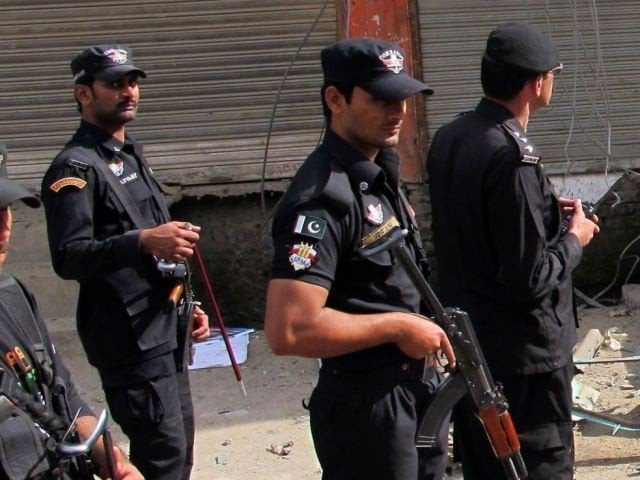Policing tribal lands: RPOs to act as focal persons for tribal areas
Police to send teams to the district to assess infrastructure needs

PHOTO: EXPRESS
A notification in this regard was issued by the Khyber-Pakhtunkhwa (K-P) inspector general of police (IGP) Salahuddin Mehsud on Friday.
The notification proposed that police in the erstwhile Federally Administered Tribal Areas (Fata) will now be controlled by the regional police officer (RPO) of the nearby administrative divisions. RPOs have also been asked to send in their proposals in this regar.
A copy of the letter, obtained by The Express Tribune, shows that it has been proposed that the Malakand Deputy Inspector General (DIG) Saeed Wazir will be responsible for the Bajaur tribal district. Mardan RPO Muhammad Ali Gandapur will be responsible for the Mohmand tribal district, Peshawar Capital City Police Office (CCPO) Qazi Jamilur Rehman will be responsible for the Khyber tribal district and the merged areas of Frontier Region (FR) Peshawar.
Similarly, Kohat RPO Ijaz Khan will be responsible for the Orakzai and Kurram districts, while Bannu RPO Muhammad Kareem Khan will be responsible for FR Bannu, FR Lakki and North Waziristan tribal district.
Dera Ismail Khan (DI Khan) RPO Dar Ali Khattak will be responsible for FR DI Khan, Lakki and South Waziristan tribal district.
They have been asked to work in coordination with the local administration and security forces and submit their findings and recommendations on raising police forces in these areas as soon as.
A police official told The Express Tribune that they have formed police teams who will be visiting the tribal areas to review the prevailing security situation and suggest steps for the merger as soon as possible.
“They would assess the situation and determine how many police stations, police posts are required and where they should be established. This process would take two to three weeks to complete,” the officer said, adding that then, the deputy commissioner of each tribal district will assess the money required for the establishment of the requisite infrastructure.
He hoped that the infrastructure development would be swift.
Another high-ranking police officer told The Express Tribune that one of the biggest challenges they face in extending police infrastructure to the erstwhile Fata areas was the rough terrain. However, it is still eclipsed by the challenge of policing an area which has had a prolonged history of law and order situation.
“All the RPOs have been made focal persons for their adjacent Fata district and we are going to send teams to these areas. We would actively cooperate with the security forces and the most important challenge is the policing of the areas which are still suffering from militancy and where terrorism continues,” he argued.
Earlier, a meeting of senior police officers led by IGP Mehsud had decided that police will be deployed in phases in the erstwhile Fata areas.
In this regard, the provincial police department has asked the DCs of tribal districts to provide them with details of the levies and khasadar forces in these areas.
It is expected that around 13 new police lines, 95 police stations and 190 police posts are set up in the tribal districts. Moreover, a police force of around 45,000 is expected to be deployed in these districts.
Of these, more than half, or around 25,000, will be fresh recruits.
Published in The Express Tribune, October 13th, 2018.













COMMENTS
Comments are moderated and generally will be posted if they are on-topic and not abusive.
For more information, please see our Comments FAQ